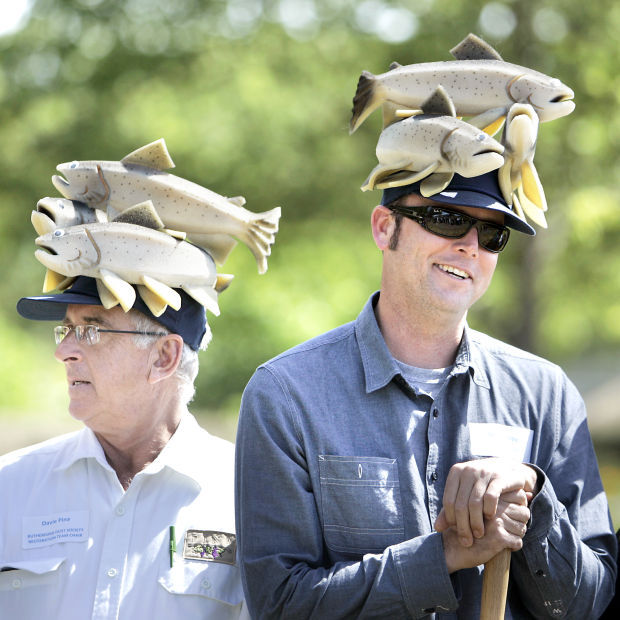The California Roadkill Observation System is operated by the Road Ecology Center at UC Davis. Our friend Eli worked to get it to show the incidence of beaver deaths around the state caused by drivers, which is a grimly useful tool for getting a handle on population. We can infer where there are breeding colonies and where beavers decided to disperse. The interactive map tells you what was seen and where, The one near San  Jose is from highway 1 at Pescadero, which is a colony we know about. The one that makes me sad is the yellow one (meaning a large beaver) which was trying to cross highway 37. This means he or she VERY nearly made it on his way to colonize Marin, which might be harder to do than we realize with all the lethal motorways in between.
Jose is from highway 1 at Pescadero, which is a colony we know about. The one that makes me sad is the yellow one (meaning a large beaver) which was trying to cross highway 37. This means he or she VERY nearly made it on his way to colonize Marin, which might be harder to do than we realize with all the lethal motorways in between.
I like knowing there is a resource to report these deaths at least. I’m especially troubled by highway deaths when those lethal spacers block the center of the roadway. There is no place for the animal to get through and they just are forced to wander aimlessly looking for an opening.
This is a depressing conversation for a monday, so I’m going to give you a LARGE DOSE of cheer.
Napa River restoration begins a new phase Upvalley

OAKVILLE — After 13 years and $21 million, restoration of 4.5 miles of Napa River banks in the heart of Napa Valley is complete, offering improved habitat and reducing flood damage.
Federal, state and local leaders celebrated the accomplishment Thursday as they prepared to launch phase 2: 9 miles of bank restoration from Oakville to Oak Knoll costing another $21 million.
Almost 100 people turned out for the by-invitation morning event along the rivers bank at the Opus One Winery in Oakville, including Rep. Mike Thompson, D-St Helena.
“This river is part of what makes Napa County the iconic landscape that it is,” said Samuel Schuchat, executive officer of the California Coastal Conservancy. “I strongly believe this is the future of river restoration in California.”
One of the most exciting things at the Salmonid Federation Urban Streams Workshop I attended, was this talk
A “Living River” Runs Through It, The Napa Creek Flood Management Project – Leslie Ferguson, San Francisco Bay Regional Water Quality Control Boardwhich described the 20 year job of restoring the Napa River. No kidding, 20 years of involving stake holders, wooing business leaders, and politicians. 20 years of weekly meetings to talk about letting the river return to some of its natural state, which means vintners had to agree to give up some of the most valuable land in the entire country.
More than a decade ago, vineyard owners in the group called The Rutherford Dust Society started the effort. The result is the newly completed Rutherford Reach project between Zinfandel Lane and Oakville Cross Road.
Twenty-eight landowners participated in the $21 million project. The county’s Measure A flood control sales tax provided $12.5 million, with federal and state agencies contributing $7.9 million. Landowners gave up 30 acres of vineyard land worth an estimated $9 million and agreed to pay a maintenance assessment.
Davie Pina of the Rutherford Dust Society and Pina Vineyard Management has seen a difference with wildlife along the river. He’s seen beaver dams and ospreys and Swainson’s hawks.
“Things are coming back, and we are doing the right thing around here,” he told the gathering.
Once again, the arrival of beaver dams are recognized as a reward for the very hard restorative work done. I say ‘again’ because I was lucky enough to once have a lovely conversation with the revered Hughlet Hornbeck about just this topic in terms of cleaning up the Marina, Granger’s Wharf and the mouth of Alhambra Creek in a sustained effort of 50 years that lead to the arrival of our beavers. He said the beavers were a reward for their effort. He wanted to meet the young lady who had “scared the city council” into letting them live.
( A memory to treasure until the end of my days for sure.)
Back to the topic at hand, learning about the marathon efforts at work in Napa have helped me understand just why their response to the beavers has been so uniformly idyllic. They are river-smart in Napa because they spent literally decades studying. Meeting every week, arguing with landowners, persuading the thick-headed and zealous over patient dialogue, compromising and never getting half of what they wanted. They did a remarkable thing,
We should all hope to be a part of something beautiful that is so long in the making.









































